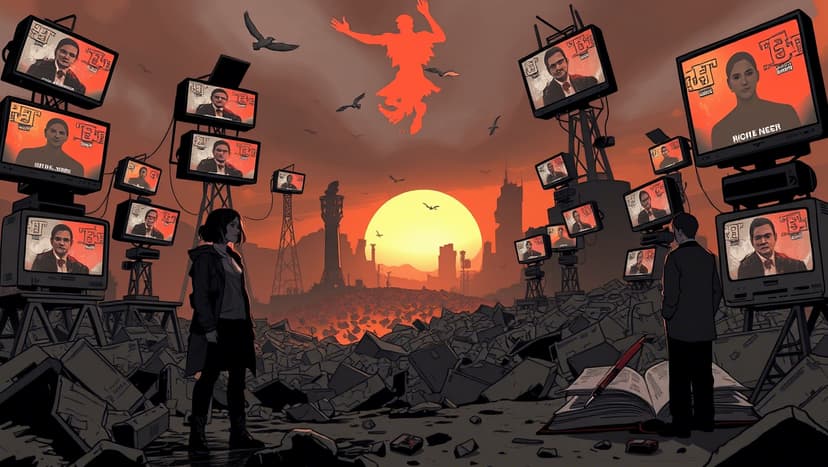It’s been over a decade since the flames of The Hunger Games first ignited imaginations across the globe, and yet here we are — back in Panem. Suzanne Collins’ newest novel, Sunrise on the Reaping, has delivered an unexpected and poignant return to the world of districts, sacrifices, and rebellion. But this time, it’s not Katniss Everdeen in the spotlight. It’s a young Haymitch Abernathy.
Released in 2025, Sunrise on the Reaping is both a prequel and a revelation. It transports us 24 years before the 74th Hunger Games, landing us squarely in the Second Quarter Quell — a chilling reminder that the Games were always evolving, always designed to punish more deeply. With this latest installment, Collins once again peels back the layers of spectacle and control to expose the emotional cost of survival in a fractured world.
The Story We Didn’t Know We Needed
In the original trilogy, Haymitch was the sarcastic, grizzled mentor — brilliant but broken, with a whiskey bottle always nearby. We knew he’d won the 50th Games. We knew he outwitted the Capitol. But Sunrise on the Reaping gives us his truth.
We meet 16-year-old Haymitch in District 12 — poor, underestimated, but sharp as ever. The book follows his selection as a tribute, his preparation, and ultimately, his harrowing time in the arena. This isn’t just another survival story. It’s a study in trauma, injustice, and resistance.
Collins crafts a gripping narrative that deepens our understanding of Panem’s psychology. Haymitch’s story is personal and raw. He’s not a revolutionary — not yet. But we see the seeds planted. Through heartbreak, betrayal, and impossible odds, Haymitch becomes the man who will one day guide another reluctant victor named Katniss.
Themes that Burn Brighter Than Ever
One of the most impressive elements of Sunrise on the Reaping is its thematic resonance. Collins explores familiar concepts — power, control, media manipulation — but weaves in new emotional layers. We see the weaponization of grief. The quiet cruelty of spectacle. The performative empathy of the Capitol.

But there’s also resilience. Friendship. Defiance. Even love. These moments make the narrative more than a bleak dystopia — they make it human.
As in previous novels, Collins embeds philosophical weight into the plot. Questions arise: What makes a person heroic? Is survival a moral compromise? Who owns our stories — us or those who broadcast them?
A Cast of Characters Worth Remembering
While Haymitch is the novel’s anchor, the supporting cast adds richness and texture. There’s Lenore Dav Baird, a musical soul with a tragic connection to The Ballad of Songbirds and Snakes‘ Lucy Gray Baird. There’s Tallow, a fellow tribute whose strength and vulnerability mirror Rue’s emotional impact. There are Capitol voices — stylists, mentors, announcers — whose roles remind us that in Panem, performance is everything.
Even President Snow makes an early appearance, reminding us that evil often plants itself early and grows quietly until it’s everywhere.
Is This Book for Teens or Adults? Yes.
Like the other books in the series, Sunrise on the Reaping is marketed as YA, but its themes and intensity may resonate more with older teens and adults. Younger readers will connect with the action, the heartbreak, and the injustice. Adult readers will find even deeper commentary on systems of power, trauma, and generational scars.

It’s an excellent book for family discussion, especially for parents and teens who’ve read the original trilogy together. There’s much to unpack — not only about Panem but about our own world.
For longtime fans, this book is more than a release — it’s a celebration of a franchise that shaped a generation. And what better way to mark the occasion than with a themed reading night?
It’s an easy, festive way to get kids and teens excited about reading — and to add a little fizz to your fandom.
Final Thoughts: Worth the Wait
Sunrise on the Reaping isn’t just a return to form — it’s a return to meaning. It reminds us why The Hunger Games mattered in the first place: because it gave voice to the powerless, exposed the manipulations of power, and reminded readers of the strength in compassion and choice.
Suzanne Collins doesn’t write sequels for the sake of nostalgia. She writes to illuminate. To challenge. And to offer us — once again — the thrill of a story that feels both far away and frighteningly close to home.
Whether you’re a new reader curious about Panem’s past or a longtime fan who’s been waiting since the final arrow flew, this book delivers. And it lingers.
May the pages ever be in your favor.



